What are you reading? I am reading Jowhor Ile’s And After Many Days. I think I will stop reading this book for now. It is boring. I have tried jor. I am on page 49, and it keeps trying to force me to sleep. It starts out quiet and stays quiet like a mouse. It lacks energy and soul and one wonders why the book was ever written. I am sorry, there is no redeeming value from reading it. It is somnolent, might as well give me Valium. I will send you a copy of the book. You might like it, who knows.
It does remind me of Chigozie Obioma’s book, The Fishermen — without the soul and the energy. Wait, do you ever feel like a jerk when you feel like dumping a book? I do. I feel under a certain obligation to give the book a chance. It keeps me going, you know, reading, hoping that the book will pick up. It invariably never does. Will I review Ile’s book? Nah, I think I will pass on this one. Which is a shame, the author is a brilliant writer. Here is a beautiful travel piece he wrote about the city of Port Harcourt.
I love his essays. I am looking at a piece he wrote for Farafina Magazine in 2007, lovely, just lovely. Oh, do you know his real name is Ikejiowhor Ile? Anyway, I wasn’t feeling his novel. It read like a short story relentlessly stretched into a novel. Why? Laconic could be a strength, but it is scrubbed of every ounce of energy, kilode? Just write one nice short story and publish it in Guernica or The New Yorker, and you are still a writer. Why torture the reader with somnolence? It is as if once offered a book contract he freezes and can only offer neatly typed pages of antiseptic sentences that go on and on forever. SMH. It is a yawn-fest for me. Sigh. Tedium is not my portion, IJN, jor.
Why do we read these things anyway? At what point in a book, do you say, Enough! and bin it? Chapter 1, 2? Page 2, 20? Do you always force yourself to finish reading a book? Why? True confession: Tell me, which highly acclaimed book are you too embarrassed to tell the world you never finished because you hated it? Which reminds me, I really should tell people to stop sending me their books to read and review.
I am not a book critic. I am really not a reviewer, not in the traditional sense. There is no requirement for me to review books, say weekly. I read noisily, meaning if I grab a book to read, I write my thoughts along the margins, or if I am on Kindle, I highlight pertinent parts and jot down notes. I often compile the result into essays that folks erroneously call reviews. My first “review” I believe was Wole Soyinka’s You Must Set Forth at Dawn, which actually started out as long-form comments I made on the list-serve Krazitivity around 2006 when the book was published. I have since written several essays on the works of high-profile authors.
These days I hardly read the books of African authors of stature. They are over-exposed, besides their western publishers are well-connected and can pretty much get them reviews in all the major newspapers of the world. Also, it is about who speaks for Africa. If there are a dozen writers of world stature from Africa, that is approximately zero percent of African writers writing about Africa. To the extent that these are the thinkers purportedly speaking for Africa, Africa has no real voice. If a tree falls in the forest and no one hears it, is that one a tree?
Ah. I am in a bad mood, can you tell? These books drained of color and nuance and climate by mostly Western editors are getting on my nerves. Thinking of language, conquest, and the loss of meaning. I have often reflected on the loss of meaning, of what gets lost in translation when as the conquered we try to fit our words and thoughts into the English language, an alien vehicle. Many words that now mock us do not really exist in my language.
For instance, where I come from, we have no bride price, because we do not sell people. Sadly, the white man took a crucial part of a ceremony literally. We do not eat termites or bugs, we eat irikhun. By the way, it is interesting that the white man glorifies his food and narratives with sweet words and we allow him to label ours with pejoratives. The people of Calabar had no fattening rooms until the white man came. That is not what they called that rite of passage. Today our NGO feminists refer to the kitchen as a pejorative, this dank, dark place that women and children toil in. There is no word for kitchen in my village. The women of my village are equal owners of our compound and are the business managers of the house, everything that is caught or farmed comes home to them. Or at least that is what it was until the white man came. Much of contemporary African writing has really not been that critical and thorough in addressing our issues, for many reasons, chief of which is a distinct lack of confidence in our writers. I have written a bunch of essays about this. Google me, LOL.
In my early writing years I would write really angry essays excoriating this writer or the other based on my perception of the politics of the written word, or what Achebe calls today, the balance of the stories. If there seems to be no regularity or rhyme to my “reviews”, it is the way it is. I am mostly using what I read to try to understand and explain my world. Again, you will rarely find me commenting on the works of established writers these days. They have said enough, and to be honest there is not much there that is exciting or even innovative. With all due respect, they are all steeped in the comforting warmth of orthodoxy and rarely stray beyond safe boundaries. They remind me of music purists who still insist that the cassette is the best form of music storage.
Okay. I know I sound like nails on the blackboard, but seriously, if you really want to hear the discordant voices of Africa, you must look to the young writers. They form close to 99 percent of African writing, doing really important and innovative work, yet no one seems to be listening to them. I would argue as I have argued ad nauseam in the past that virtually all African writers of stature market their books for the West where there is a paying reading audience. They are constrained therefore in the packaging of the message. To be fair, quite a few of them are on social media engaging the huge African readership with really powerful essays and dialogue. Regardless, it is not for them I read and write. I seek to engage new voices wherever I can find them.
Think of it this way. In the sixties and seventies we had Heinemann’s African Writer’s Series and Fontana books. We also had Onitsha Market literature. They produced hundreds of books and many writers were writing various things about their Africa. I would argue that if you read T. M. Aluko, Flora Nwapa, Cyprian Ekwensi, etc. they were addressing an audience that was primarily home grown. Fast forward to today, those structures have been largely dismantled and trying to get published in the West is like climbing the pyramid from hell. Only a handful get to the pinnacle. We have a problem. Today there is a great body of work on the literature of that era. We cannot say the same today about this generation’s literature to the extent that approximately 100 percent of it is on digital media. Traditional literary communities are fixated on the zero percent. Because they are faithful to the old paradigm — be published in books. But I am being generous.
Our writers need to be less of hustlers and more of risk takers, those who touch and punch the boundaries of our real and imagined worlds. I think courage and honesty also involve a willingness to try other forms and media of literary expression. There is a real question of the viability of the traditional novel as the voice of the 21st century. Will Self makes this interesting point that the future of the serious novel is in jeopardy in the essay, The novel is dead (this time it is for real). Read it, I got it for you…
Speaking of which, I was going through the detritus of my life in America, and I found several old copies of Farafina Magazine. My stash goes from 2005 to 2007. It is quite a historical archive of who’s who in African literature at the time. Chimamanda Adichie edited an “America” issue, with a broad range of writers. Akin Aresokan edited the “Home – Lost & Found.” Petina Gappah edited “Journeys.” Uzodinma Iweala edited “Africa and the Rest of the World.” Toni Kan edited the “Woman” issue. etc. From Wole Soyinka to Molara Wood, all the writers are represented, including Teju Cole, Nnedi Okorafor, Dele Olojede, Funmi Iyanda, Yemisi Aribisala, Isidore Okpewho, Dinaw Mengistu, Onoshe Nwabuikwu, Uzodinma Iweala. E don tay . Muhtar Bakare was of course the quiet force behind Farafina Magazine. I wish I had the stamina, I would write a historical essay that comprised this and the mailing lists of the time, krazytivity still run by Amatoritsero Ede, Obiwu Iwuanyanwu’s Ederi and Nnọrọm Azụonye’s Poetry Bar. Hmmm. That’s an idea. Who will pay me? Muhtar Bakare paid us to write. Those were the days. Come to think of it, I should return to my days as a writer. Life was more fun then! 😍
************
“Dear Genevieve” is a writing-advice series. The weekly missive allows Ikhide Ikheloa, one of Africa’s foremost literary critic, to dish out prized advice on various aspects of writing. Stop by next Monday for the next email.
Read more from the series:
Pt. 1: Dear Genevieve, It’s All in the Narrative | By Pa Ikhide
Pt. 2: Dear Genevieve, Find Your Voice
Pt. 3: Dear Genevieve, Find Your Space
Pt. 4: Dear Genevieve | The Writer Should Be Paid for Content on the Internet
Pt. 5: Dear Genevieve | Of Reading, Writing, Purpose and All That Jazz
Pt. 6: Dear Genevieve | Words are Powerful, Speak the Truth, Even if Your Voice Shakes
Pt. 7: Dear Genevieve | African Literature Needs Innovation and Funding
Pt. 8: Dear Genevieve | Africa Reads and Writes!
***********
About the Author:
 Ikhide R. Ikheloa or Pa Ikhide is a social and literary critic who writes non-stop on various online media. He was a columnist with Next Newspaper and the Daily Times, Nigeria, where he held forth and offered unsolicited opinions on any and everything to do with literature and the world. He has been published in books, journals and online magazines and he predicts: ‘The book and the library are dying. Ideas live.” Find him on twitter @ikhide
Ikhide R. Ikheloa or Pa Ikhide is a social and literary critic who writes non-stop on various online media. He was a columnist with Next Newspaper and the Daily Times, Nigeria, where he held forth and offered unsolicited opinions on any and everything to do with literature and the world. He has been published in books, journals and online magazines and he predicts: ‘The book and the library are dying. Ideas live.” Find him on twitter @ikhide


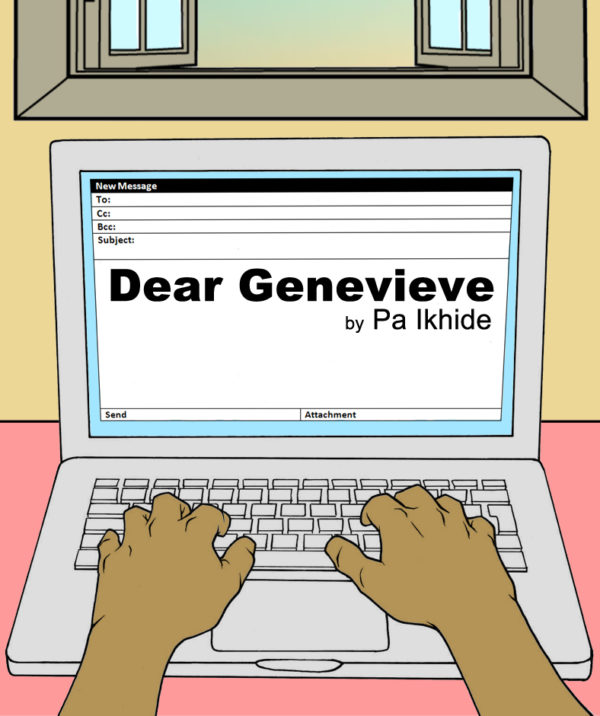
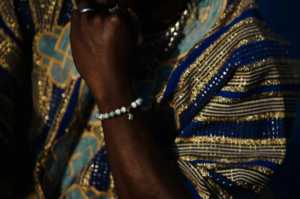

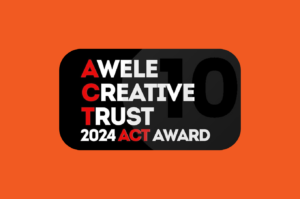
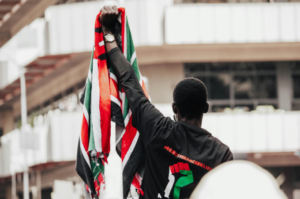
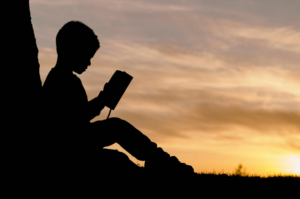


Hannah March 21, 2017 05:30
I like this one. Urging writers to take risks. Sometimes we're too steeped in what everyone's doing. Incidentally, I'm also reading And After Many Days. I'm on page 110. I think (hope) it's building up to something. In any case, it seems the quietness outlines what amounted to the everyday life of this family before the son's disappearance.